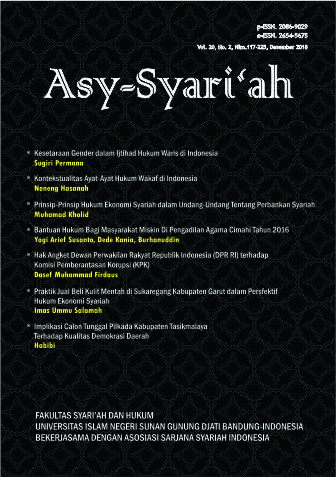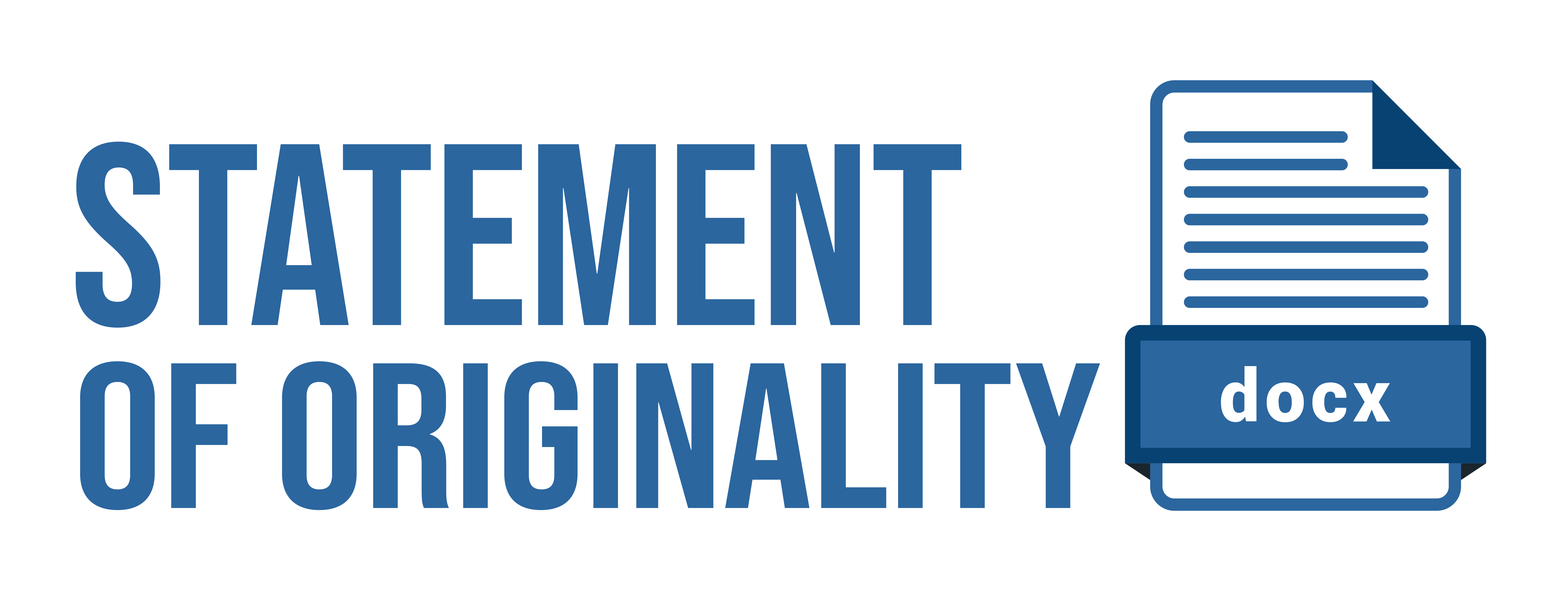PRAKTIK JUAL BELI KULIT MENTAH DI SUKAREGANG KABUPATEN GARUT DALAM PERSFEKTIF HUKUM EKONOMI SYARIAH
The Practice of Raw Leather Trade in Sukaregang, Garut Regency: A Sharia Economic Law Perspective
DOI:
https://doi.org/10.15575/as.v20i2.3063Abstract
Abstract
Buy and sell is an activity to trade goods to other goods or money, and vice versa. In this case Sharia has outlined various conditions and essential requirements so the trade can be considered valid. The object of this study is the practice of cow and sheep skin trade in Sukaregang, Garut Regency, with aims to determine the aspects of sharia economy in the trade, to find a way and solutions for a better system. This paper is based on field research results, used observation and interviews as data collecting methods upon sellers and buyers of cow and sheep skin in Sukaregang, Garut Regency. It shows that the skin trade use kilo system, by weighing the skin. It can be considered as goror, since skin quality is known after buyer process the skin into semi-finished goods. The seller’s motive using kilo system is to gain more profit, even though it will affect the quality of Garut’s leather industry.
Keywords:
sharia economic law, trading, cow and sheep skin, leather industry
Â
Abstrak
Jual beli adalah suatu kegiatan tukar menukar antara barang dengan barang, atau uang dengan barang, juga sebaliknya. Dalam hal ini syariah telah menggariskan berbagai syarat dan rukun agar jual beli tersebut dapat diakui keabsahannya. Dengan objek kajian praktek jual beli kulit sapi dan domba di daerah Sukaregang Kabupaten Garut, penelitian ini bertujuan untuk mengetahui aspek hukum ekonomi syariah dalam praktik jual beli tersebut sehingga diharapkan menjadi jalan untuk mendapatkan solusi bagi para pelaku usaha agar terhindar dari kerugian di masa yang akan datang. Tulisan ini dasarkan pada hasil penelitian lapangan (field research) dengan menggunakan metode observasi dan interview kepada penjual dan pembeli kulit sapi dan domba di Sukaregang Kabupaten Garut. Hasil penelitian menunjukkan bahwa pelaksanaan jual beli kulit dengan sistem kilo tersebut mengandung unsur gharar, mengingat kualitas barang tidak tampak pada saat jual beli, dan baru diketahui setelah barang tersebut diolah oleh pembeli menjadi barang setengah jadi. Adapun faktor pendorong para penjual menggunakan sistem kilo tidak lebih dari motif untuk mendapatkan keuntungan, padahal jika diteliti lebih lanjut akan mengakibatkan penurunan kualitas industri kulit di Garut.
Kata Kunci:
hukum ekonomi syari’ah, jual beli, kulit sapi dan domba
References
Buku
Al-Anshari, Abi Zakaria. Fathu T.th. al-Wahab, Surabaya: al-Hidayah
Al-Zuhaily, Wahbah, 2005, Al-Fiqh al-Islami wa Adillatuh,juz 4. Damaskus : Darul Fikr.
Bahjah Qulub Al-Abrar wa Qurratu Uyuuni Al-Akhyaar Fi Syarhi Jawaami Al-Akhbaar, Abdurrahman bin Nashir As-Sa’di, Tahqiq Asyraf Abdulmaqshud, Cet. II, Th 1992 M, Dar Al-Jail.
Hasan. M. Ali, 2004, Berbagai Macam Transaksi Dalam Islam. Jalarta : Raja Grafindo.
Ibnu Mas’ud & Zainal Abidin, 2007, Fiqih Madzhab Syafi’i. Bandung, Pustaka Setia,
Mardalis, 1995, Metode Penelitian, cet. III, Jakarta: Bumi Aksara.
Nasrun, Haroen, 2007, fiqh muamalah. T.t. pn. Gaya Media Pratama.
Saifuddin, Azwar, 2004, Metode Penelitian, Cet. V. Yogyakarta: Pustaka Pelajar.
Suhendi, Hendi, 2005. Fiqih Mu’amalah, Cet Ke-1, Jakarta: PT Grafindo Persada
Suryabrata.Sumardi, 2004, Metodologi Penelitian. Jakara: PT Raja Grafindo Persada.
Sutrisno, Hadi, 1987, metodologi research. Yogyakarta: Fak. Psikologi UGM.
Syarifuddin, Amir, 2003, Garis-Garis Besar Fiqh, Jakarta: Kencana.
Wawan Djunaedi, 2008, Fiqih, Jakarta: PT. Listafariska Putra.
Internet
Referensi: https://tafsirweb.com/1561-surat-an-nisa-ayat-29.html)
Downloads
Additional Files
Published
How to Cite
Issue
Section
Citation Check
License
Copyright (c) 2018 Jurnal Asy-Syari'ah

This work is licensed under a Creative Commons Attribution-ShareAlike 4.0 International License.
The author whose published manuscript approved the following provisions:
- Authors retain copyright and grant the journal right of first publication with the work simultaneously licensed under a Attribution-ShareAlike 4.0 International (CC BY-SA 4.0) License that allows others to share the work with an acknowledgment of the work's authorship and initial publication in this journal.
- Authors are able to enter into separate, additional contractual arrangements for the non-exclusive distribution of the journal's published version of the work (e.g., post it to an institutional repository or publish it in a book), with an acknowledgment of its initial publication in this journal.
- Authors are permitted and encouraged to post their work online (e.g., in institutional repositories or on their website) prior to and during the submission process, as it can lead to productive exchanges, as well as earlier and greater citation of published work (See The Effect of Open Access).






